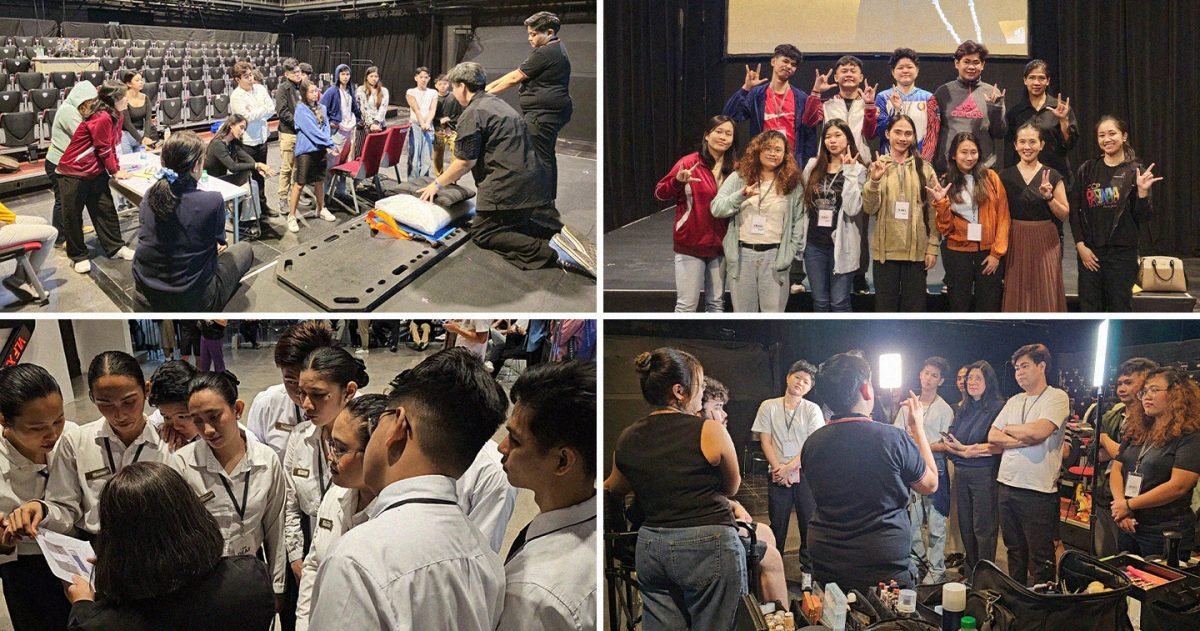“We are doomed — unless we wake up.”
That’s the warning posted on Facebook recently by Catholic Bishops’ Conference of the Philippines (CBCP) president Cardinal Pablo Virgilio David as he decried the explosion of online gambling now accessible 24/7 to young and old.
“Goodbye, studies. Goodbye, decent jobs. Goodbye [to] the hope of hardworking families… And hello — hello to a whole generation of gambling addicts.” he said. “Who needs to sneak into a high-end casino when the casino has been brought into every living room, every bedroom, every child’s pocket—right there on the glowing screen of a smartphone?”
He also did not mince words in denouncing celebrities and online influencers who promote gambling apps, accusing them of “prostituting themselves for a fee” to serve the interests of “conscience-less billionaires.”
But even before Cardinal David’s admonition, it was popular vlogger Kyle Jennermann (Becoming Filipino) who sparked a national conversation. On June 11, he recounted the tragic story of a jeepney driver who squandered his day’s earnings on Bingo Plus, right in the midst of his workday.
“I had the saddest jeepney ride I have ever experienced,” Kyle wrote as he pitied the driver who kept loading P50 via GCash, losing it in seconds, then reloading again. “He easily blew all his earnings… in minutes.”
Kyle’s post quickly went viral, reaching 25 million people in just 48 hours, generating 87,000 shares and 7,600 comments — a stunning testament to how alarming the surge of online gambling is impacting the country.
Online or offline, legal or illegal, gambling in the Philippines has become an all-consuming beast. From flashy casinos to bingo apps, from jueteng and masiao to carnival “drop ball” and color games, it thrives on the promise of easy money.
Legal gambling under PAGCOR brings income to the government. But illegal gambling — such as jueteng often masked as legitimate small-town lottery (STL) operations — is a cash cow for gambling lords and corrupt officials, and is reportedly costing the government up to P50 billion a year in lost revenue.
In less regulated venues like the peryahan (carnival fairs), gambling operators can rake in up to P100,000 a night. The allure is simple: a few pesos could multiply into hundreds. But what fuels it further is an ingrained belief that it’s harmless fun — a pastime, a minor vice.
The truth is darker. Children as young as eight have been spotted placing bets in the peryahan. Some are also seen in neighborhood bingo games. In jueteng, the process is often rigged, and winnings don’t go to charity. Instead, the massive daily earnings — estimated to reach an average of P50 million in many provinces — end up enriching syndicates, bribing officials, and launching political careers of those supported by gambling lords.
Even as people are drawn into a cycle of addiction, poverty and despair, many view gambling as an escape from boredom and hopelessness. It’s no big deal if gamblers probably sin against God’s Tenth Commandment: Thou shall not covet thy neighbor’s goods, or even if the Catechism of the Catholic Church preaches that games of chance “become morally unacceptable when they deprive someone of what is necessary to provide for his needs and those of others.”
Gambling has been part of Filipino culture since Spanish colonial times. With modern technology, its reach has become inescapable. No longer confined to neon-lit casinos, gambling is everywhere, operating behind smartphone screens. Celebrities peddle online betting platforms with polished ads and empty promises of fortune. The reality? The house always wins.
And when the losses pile up, it’s not just the gambler who suffers. Families are plunged into debt. Trust is broken. Homes are lost. Violence and suicide become grim realities. There are horror stories of lives broken: cars pawned, land titles lost, even spouses offered as payment for gambling debts.
One of the most tragic episodes tied to gambling occurred in 2017 at Resorts World Manila. A lone gunman — burdened by P4 million in gambling debt — went on a shooting and burning rampage at the casino, killing 37 people before taking his own life. The tragedy was a brutal reminder of how gambling addiction can ignite unimaginable violence.
Compulsive gambling, viewed by the World Health Organization as mental illness, destroys relationships. Studies show the misery of every gambling addict affects at least ten others — spouses, children, friends, colleagues—all dragged into the same downward spiral.
After exhausting credit cards and all their savings, gambling addicts steal from loved ones and turn to illegal means to fund the vice. Unless the downward spiral is averted, the compulsive gamblers end up losing jobs, homes, even their families.
Yet, the gambling machinery rolls on. It’s a billion-peso industry backed by powerful interests. Even institutions may not be immune. The Justice Department’s top official once hinted at the immense reach of gambling money when he addressed the still-unsolved disappearances of missing sabungeros, suggesting the judiciary may be compromised.
Thus, it has become imperative that the proliferation of gambling be dealt with decisively if we are to heed Cardinal David’s call for Filipinos to wake up and avert doom.
Email: [email protected]











